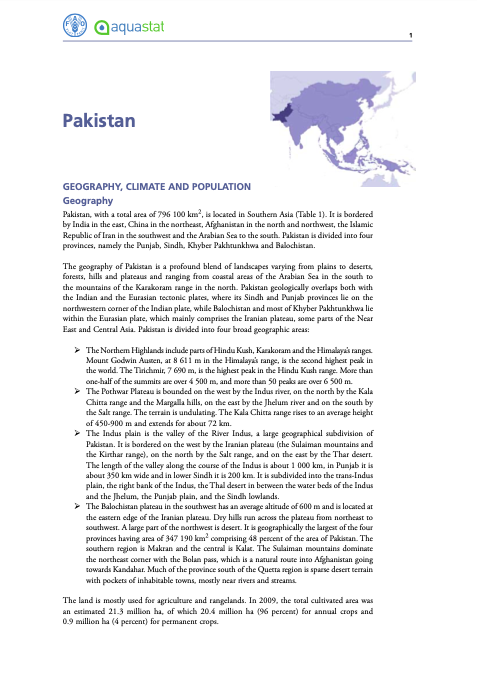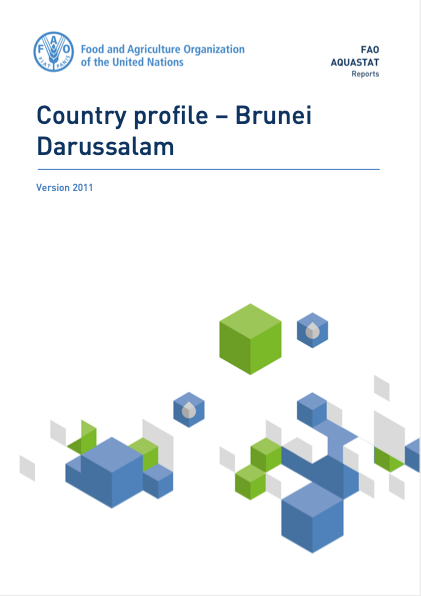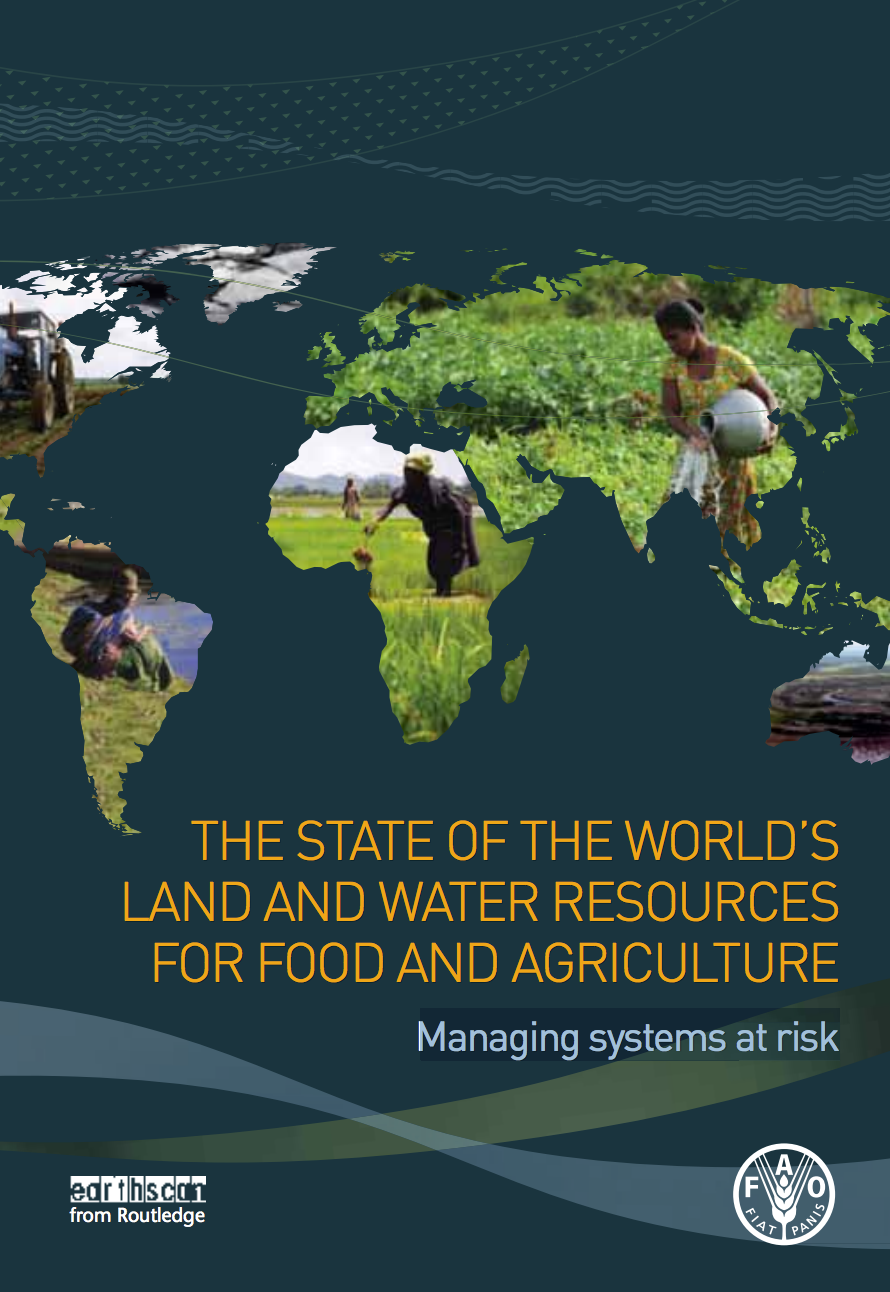Focal point
Location
The Food and Agriculture Organization of the United Nations leads international efforts to defeat hunger. Serving both developed and developing countries, FAO acts as a neutral forum where all nations meet as equals to negotiate agreements and debate policy. FAO is also a source of knowledge and information. We help developing countries and countries in transition modernize and improve agriculture, forestry and fisheries practices and ensure good nutrition for all. Since our founding in 1945, we have focused special attention on developing rural areas, home to 70 percent of the world's poor and hungry people.
Members:
Resources
Displaying 2521 - 2525 of 5074Country Profile - Pakistan
The country profile is a summary of key information that gives an overview of the water resources and water use at the national level. It can support water-related policy and decision makers in their planning and monitoring activities as well as inform researchers, media and the general public. Information in the report is organized by sections:
Country profile – Brunei Darussalam
The country profile is a summary of key information that gives an overview of the water resources and water use at the national level. It can support water-related policy and decision makers in their planning and monitoring activities as well as inform researchers, media and the general public. Information in the report is organized by sections:
- Geography, Climate and Population
- Economy, Agriculture and Food Security
- Water Resources
- Water Use
- Irrigation and Drainage
The State of the World’s Land and Water Resources for Food and Agriculture
This edition of The State of the World’s Land and Water Resources for Food and Agriculture (SOLAW) presents objective and comprehensive information and analyses on the current state, trends and challenges facing two of the most important agricultural production factors: land and water.
Ressources naturelles et environnment lettre d'infomation
Dans ce numéro, nous examinerons le Partenariat mondial sur les bioénergies et le travail important qu’il a entrepris – en collaboration avec les gouvernements et les institutions internationales – pour formuler des indicateurs de durabilité pour les projets de bioénergie. Nous nous intéresserons aussi à l’Initiative ‘Aliments pour les villes’, une approche intégratrice pour coordonner les activités de la FAO dans les zones urbaines et périurbaines et pour partager les bonnes pratiques avec d’autres organisations internationales et de la société civile.
Régimes fonciers communautaires et gouvernance des ressources de propriété commune en Asie
Document de travail sur les régimes fonciers 20. Ce document analyse les caractéristiques des systèmes de propriété communale dans divers pays d’Asie. Les pressions actuelles du marché sur les ressources naturelles créent à la fois des défis et des opportunités pour les communautés et pour les gouvernements en vue d’utiliser et de renforcer les systèmes de propriété commune pour promouvoir la gestion durable des ressources naturelles. Des politiques et des institutions ad hoc sont nécessaires pour promouvoir la redevabilité des acteurs et la bonne gouvernance de ces ressources.









